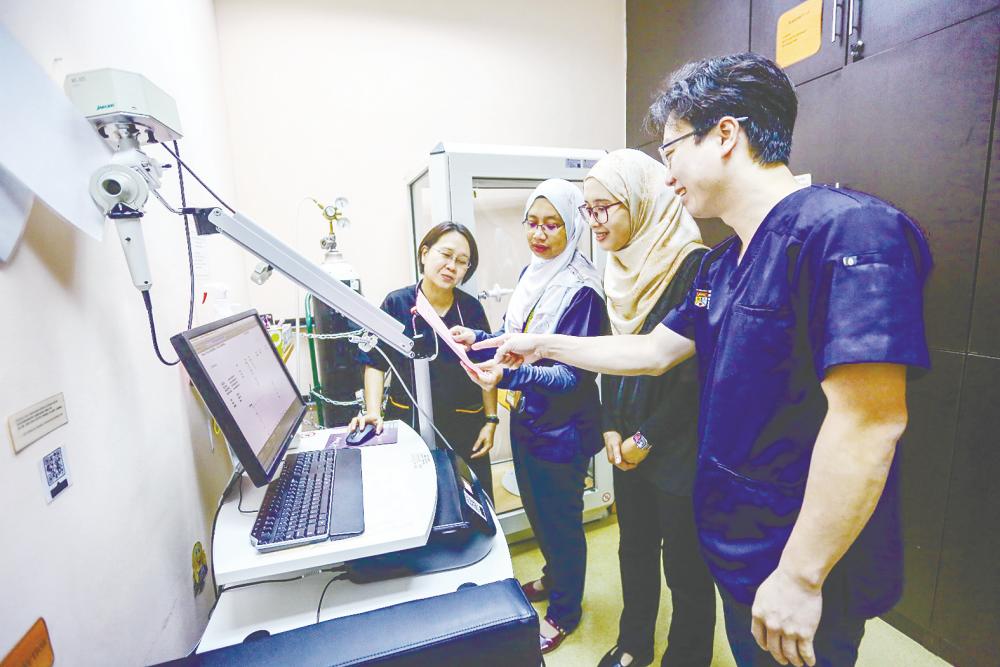PETALING JAYA: Experts believe the lingering impact of the Covid-19 pandemic has left many individuals with weakened lungs, increasing their vulnerability to severe infections such as pneumonia – a lung infection that causes inflamed air sacs filled with fluid or pus.
In its report “Statistics on Causes of Death, Malaysia 2024”, released on Oct 29, chief statistician Datuk Seri Mohd Uzir Mahidin revealed that pneumonia accounted for 18,181 deaths or 15.2% of the 119,952 medically certified deaths last year.
This marks the first time in over two decades that pneumonia has overtaken ischaemic heart disease as the leading cause of death, excluding 2021 when Covid-19 was the primary cause.
Three internal medicine and respiratory physicians from Universiti Kebangsaan Malaysia (UKM) and one from Universiti Sains Islam Malaysia (USIM) told theSun that the primary contributors to pneumonia-related deaths post-Covid-19 are community-acquired infections, particularly among individuals with weakened immunity or pre-existing health conditions such as asthma and heart disease.
UKM’s Assoc Prof Dr Andrea Ban Yu-Lin noted that patients with underlying conditions such as diabetes, chronic lung diseases or a history of Covid-19 are at higher risk of severe pneumonia.
She said the pandemic significantly impacted pneumonia trends in Malaysia, with post-Covid-19 complications such as breathlessness, fatigue, and persistent coughing, worsening pneumonia cases and complicating long-term management and treatment.
Other factors driving pneumonia mortality include an ageing population with declining immunity, smoking, air pollution, delayed medical attention, antimicrobial resistance, limited vaccination coverage and healthcare-associated infections.
Assoc Prof Dr Ng Boon Hau, also from UKM, warned that pneumonia can progress rapidly, particularly in immunocompromised patients.
Common early symptoms include fever, cough, shortness of breath, chest pain and fatigue.
“If symptoms do not improve within a few days or worsen rapidly, immediate medical attention is advised,” he said.
Ng added that infants, young children, individuals over 65, and those with chronic illnesses or weakened immune systems are at higher risk of developing severe pneumonia, especially those with malnutrition, low birth weight or incomplete vaccinations.
UKM’s Dr Nik Nuratiqah Nik Abeed emphasised the importance of prevention through vaccination and healthy habits.
“Lifestyle changes such as quitting smoking, limiting alcohol intake, eating a balanced diet, staying physically active and avoiding air pollution play a crucial role. Effectively managing chronic illnesses can greatly reduce the risk of pneumonia, while vaccination against pneumococcal infections is pivotal for protecting high-risk populations, including the elderly and those with chronic illnesses,” she said.
She added that pneumonia can cause long-term complications, potentially affecting other organs and resulting in chronic health issues.
To improve lung health and prevent future infections, survivors of pneumonia are advised to engage in pulmonary rehabilitation, practise breathing exercises and stay updated on vaccinations.
USIM’s Dr Nor Safiqah Sharil called for increased public awareness about the seriousness of pneumonia.
“Pneumonia is often underestimated. Public education campaigns are necessary to ensure people seek timely medical attention and understand the importance of prevention,” she said.
To tackle Malaysia’s high pneumonia-related deaths, Nor Safiqah stressed the need for healthcare efforts to focus on prevention, early detection and timely treatment.
“Promoting pneumococcal vaccinations for high-risk groups and implementing smoking cessation programmes are critical measures to reduce mortality.
“Families and caregivers play a crucial role in supporting loved ones with pneumonia by ensuring they adhere to their medication plans, maintain good ventilation at home, assist with breathing exercises, provide emotional support and stay alert to warning signs such as difficulty in breathing,” she said.









